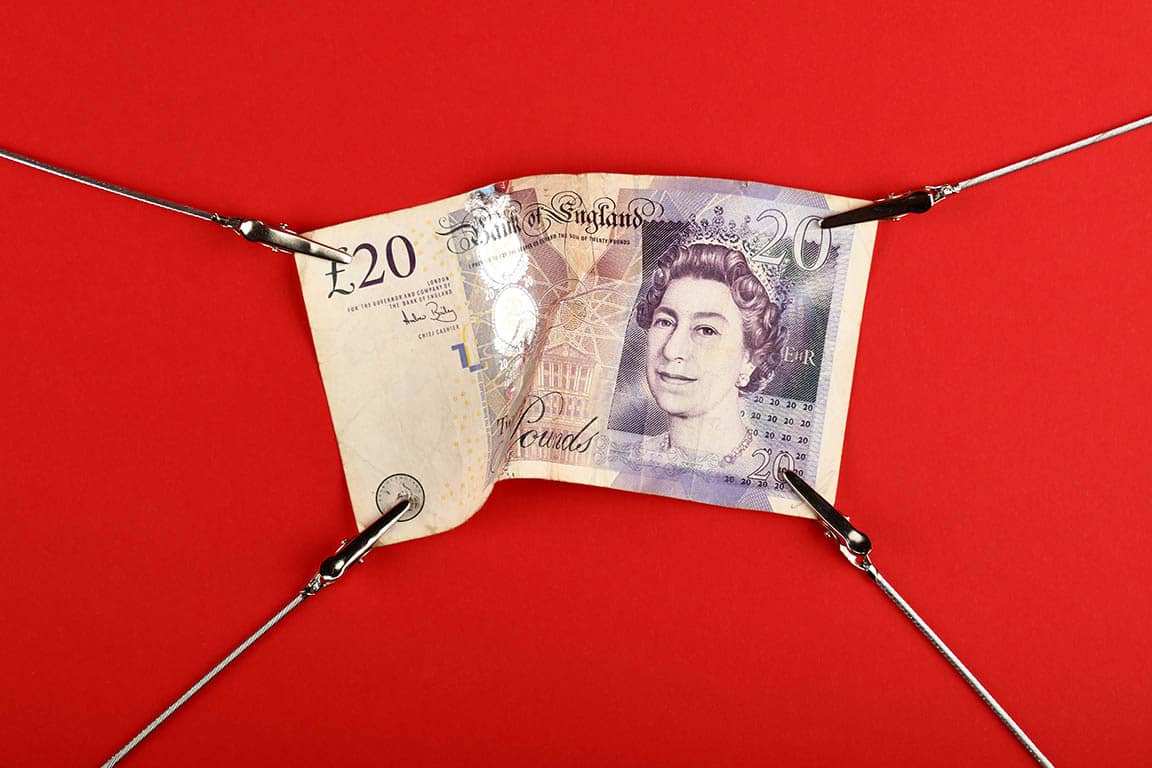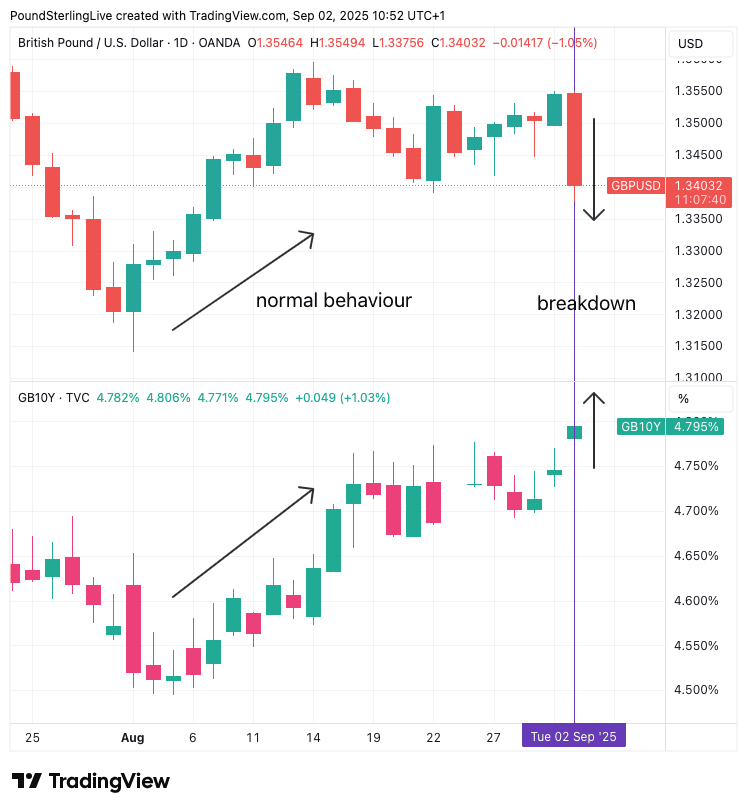
Image © Adobe Images
"Have Sterling's Autumn Blues Begun?" - Nick Kennedy, Lloyds Bank.
The British Pound fell sharply on Tuesday and is under pressure on Wednesday, amidst renewed concerns about the country's debt.
"The pound took a beating yesterday, with renewed focus on miserable British public finances," says Amanda Sundström, FX Strategist at SEB.
UK government bonds - known as gilts - have dropped in value, and the interest rates they pay are up. This rise in yield should attract the inflow of foreign funds as investors seek greater returns, which should boost the pound in the process.
However, the Pound is falling, alongside gilts, which signals markets are nervous about the UK outlook. We saw this during the Liz Truss mini-budget and on a handful of occasions already this year.
"Gilts & GBP selling off together... here we go again," says Michael Brown, a strategist at Pepperstone.
The yield on the 30-year gilt is at its highest since 1998, the yield on the 10-year is at 4.792%, its higest since May.
The Pound to Euro exchange rate fell 0.50% on Tuesday and extends losses to 1.1495 on Wednesday. The Pound to Dollar exchange rate fell 1.14% on Tuesday and holds the losses to quote at 1.3383 on Wednesday. (If you are concerned, contact our dealing desk to lock in current rates for future payments).
Market developments reflect a fear amongst investors that the UK's spending demands will require the government to borrow more.
Inflation is also rising, which sets the UK apart from its peer countries, where inflation is trending back to central bank targets. The combination of rising inflation and concerns about the sustainability of the country's borrowing requirements lessen the appeal of holding bonds and pounds.
The selloff follows a reshuffle in the UK government, with Keir Starmer promoting a number of staffers who are ideologically tied to higher taxes.
This implies the government will choose to deal with the country's debt problems by raising taxes, and not cutting spending.
The problem for the government is that higher taxes can lead to lower economic growth, meaning that the government's actual overall tax take does not meet the levels required to fill the spending deficit.
We have been warning all summer that the Pound faces a choppy autumn as the issue comes to a head in the November budget.
Market action suggests we are now entering those choppy seas.
"It’s hard to shake that broader feeling that the pound ought to be (much) weaker. UK data continues to paint a rather damp growth picture, and inflationary pressures have proven more persistent than expected," says Nicholas Kennedy, FX Strategist at Lloyds Bank. "Have Sterling's Autumn blues begun?"

